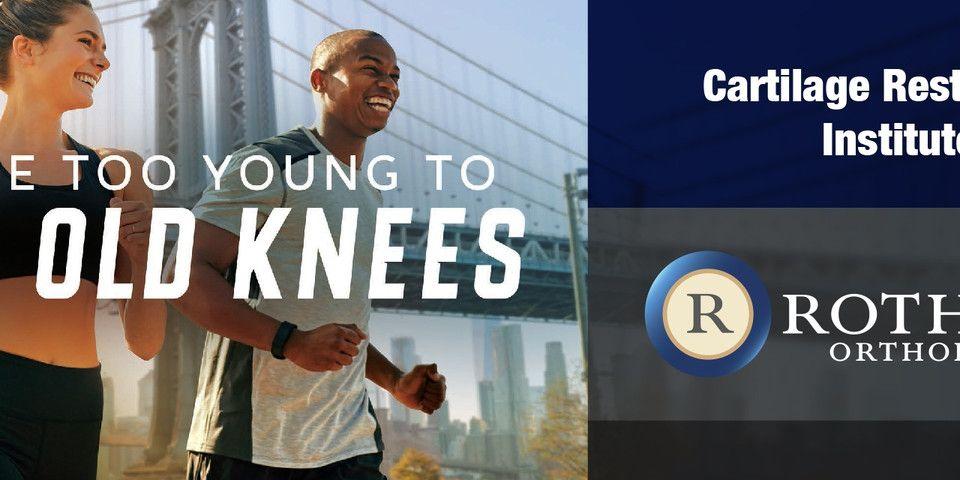Treatment for Cartilage Injuries by Top Specialists
Cartilage is crucial; it offers structure and helps absorb shock to protect bones. Cartilage injuries can impair these functions and may require expert treatment.
When cartilage is healthy and functioning properly, it generally goes unnoticed. It’s not a body component that people pay much attention to until damage occurs. For those who have suffered cartilage injuries, this typically inconspicuous part of the anatomy can become impossible to ignore.
Cartilage injuries cause painful tissue swelling at the joint, which can make normal activities unpleasant, painful, or excruciating. If you are concerned that you or a loved one may have experienced a cartilage tear, you’ll want to take the time to understand the causes, symptoms, and roles that cartilage plays in stabilizing the body’s physical function.
Healthy Cartilage and Its Functions
Before considering operative treatment for your cartilage injuries, it is important to understand the role that cartilage plays in the body. Let’s take a look at how healthy cartilage operates.
Cartilage is composed of flexible connective tissue. Because it is neither as hard as bone or as pliable as muscle, it adds flexible structure and support to key parts of the body. These include bone joints, the rib cage, the intervertebral discs, and even the bronchial tubes.
In addition to its structural function, cartilage also serves as a physical shock absorber. The cartilage that lines bone joints allows for smooth and easy movement by cushioning the bones. Without the cartilage lining, the bones in the joint would rub against each other causing pain. A key benefit of healthy cartilage is its protective function. Articular cartilage, one of the most essential cartilage types contains no nerve endings, and covers bone surfaces and joint cavities.
Injured Cartilage and its Symptoms
Now that you are familiar with the basics of healthy cartilage and its proper functioning, let’s take a look at common cartilage injuries and their symptoms.
Cartilage injuries often occur in conjunction with ligament injuries, muscle injuries, meniscal injuries, and bone injuries. These injuries can compromise the structural function of the cartilage or its function as a shock absorber (or both). Additional causes include infection and inflammation (as seen in rheumatoid arthritis cases) which also deteriorates cartilage.
With that in mind, it’s no surprise that one of the primary symptoms of cartilage injuries is persistent bone or joint pain. This is especially true in injuries that damage shock-absorbing cartilage, such as cartilage injuries in knee. Significant swelling is another common indicator of compromised cartilage.
Treating Cartilage Injuries
Fortunately, cartilage injuries can be effectively treated. The first step of treatment is physical examination by a doctor. This will usually include an MRI scan to inspect the particular conditions of the injury, and if it is suspected that a serious joint injury might have occurred an x-ray will be taken to inspect the bones.
Because cartilage tends not to heal to a sufficient degree independently, your doctor will likely recommend medical treatment. The most common treatments include arthroscopy, which smooths the impaired cartilage to restore its proper functioning or a transplant. If the MRI or x-ray has detected loose objects (such as damaged bone or cartilage) within the joint, your doctor will likely advise you to have these objects removed as well.
Cartilage injuries are routinely handled by the experts at Rothman Orthopaedics. We have extensive knowledge and experience diagnosing and treating cartilage injuries and the more severe ligament, muscle, meniscal and bone injuries, that cause them. If you believe you, or someone you love, may have experienced one of these injuries, do not hesitate to speak with a specialist at Rothman Orthopaedics. They will not only offer expert advice and guidance, they’ll ensure that you receive the best treatment available.
Call 1-800-321-9999 to schedule an appointment with us.
Related Specialties
Related Conditions
Related Treatments
Related Programs
-

Cartilage Restoration Institute
This is a center where patients can go to have their disabled joint biological resurfaced, realigned, and stabilized without having the joint replaced by artificial materials such as metal and plastic. It is well known that the outcomes of patients under the age of 50 undergoing artificial joint replacement are not as good as we would like. Therefore we feel the future of Orthopaedics is to try to restore a joint back to its original anatomy by realignment, ligament reconstruction, and cartilage restoration.Read More




